News
-
 Space
SpaceThe first magnetar flare detected from another galaxy was tracked to its home
An outburst from the super magnetic remains of a star suggests similar eruptions are behind some of the most powerful explosions in the universe.
-
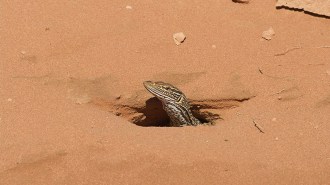 Life
LifeMonitor lizards’ huge burrow systems can shelter hundreds of small animals
Two species of Australian monitor lizards dig nests four meters deep. Now scientists reveal that the burrows are home to far more than their creators.
By Jake Buehler -
 Space
SpaceThe most ancient supermassive black hole is bafflingly big
The farthest known quasar challenges ideas about how the first supermassive black holes in the universe formed.
-
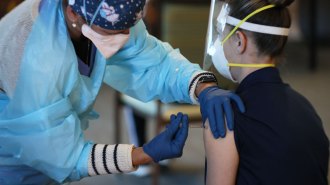 Health & Medicine
Health & MedicineThe more contagious coronavirus variant may soon be the U.S.’s dominant strain
More rigorous efforts to vaccinate, wear masks and social distance are needed to curb the variant’s spread, CDC says.
-
 Space
SpaceThe Parker Solar Probe will have company on its next pass by the sun
The probe is about to make another close pass of the sun. This time, Solar Orbiter, BepiColombo and others will be watching too.
-
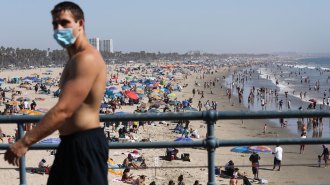 Climate
Climate2020 and 2016 tie for the hottest years on record
Ocean temperature data as well as temperatures measured over land at weather stations around the globe revealed the extent of the warming.
-
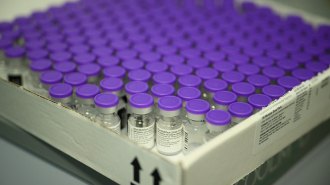 Health & Medicine
Health & MedicineCould delaying a second vaccine dose lead to more dangerous coronavirus strains?
Some experts worry extending the time between vaccine doses could help the virus evolve in potentially harmful ways, but viral evolution is complex.
-
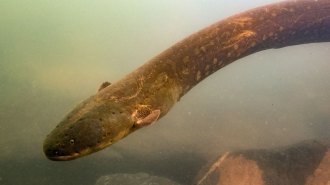 Animals
AnimalsSome electric eels coordinate attacks to zap their prey
Electric eels were thought be to solitary hunters, until researchers observed over 100 eels hunting together, releasing coordinated electric attacks on corralled prey.
-
 Quantum Physics
Quantum PhysicsDrones could help create a quantum internet
Flying drones sent entangled particles of light to two locations a kilometer apart.
-
 Earth
EarthEarth’s oceans are storing record-breaking amounts of heat
2020 was just the latest in a series of record-breaking years for ocean heat.
-
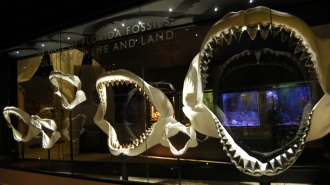 Paleontology
PaleontologyNewborn megalodon sharks were larger than most adult humans
Preserved pieces of backbone suggest that megalodon sharks were about 2 meters long at birth.
-
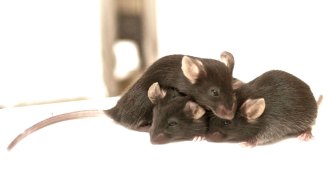 Neuroscience
NeuroscienceMice may ‘catch’ each other’s pain — and pain relief
Healthy mice mirror a companion’s pain or morphine-induced relief. Disrupting certain connections in the brain turns off such empathetic behaviors.